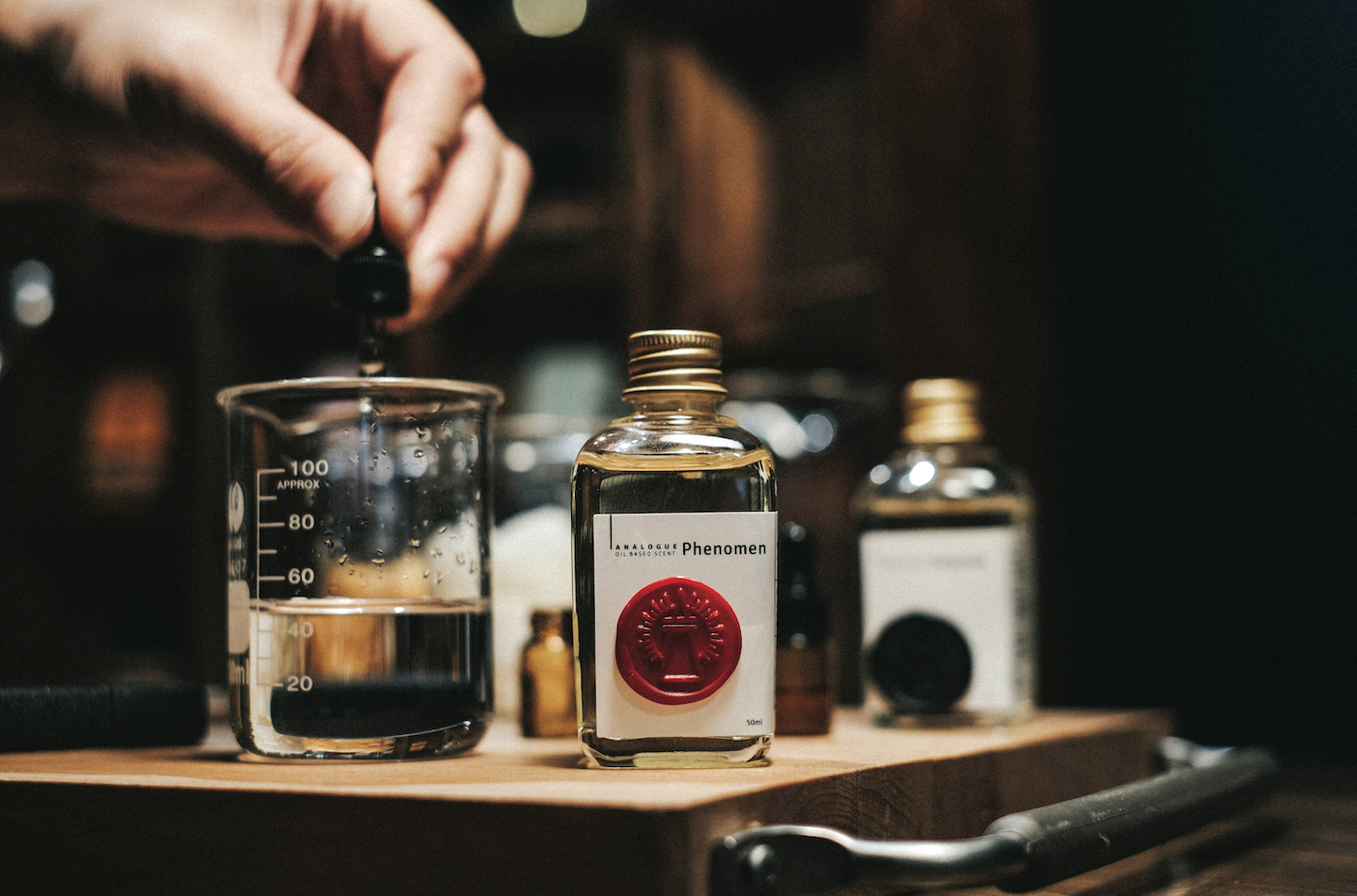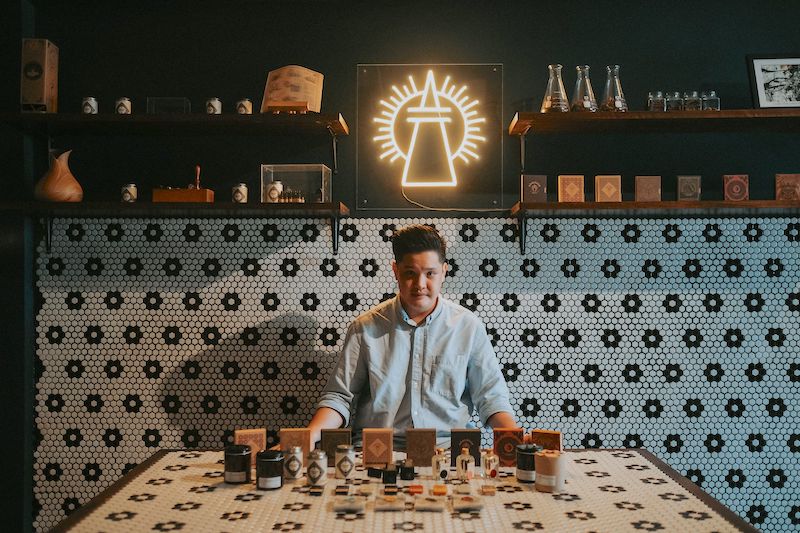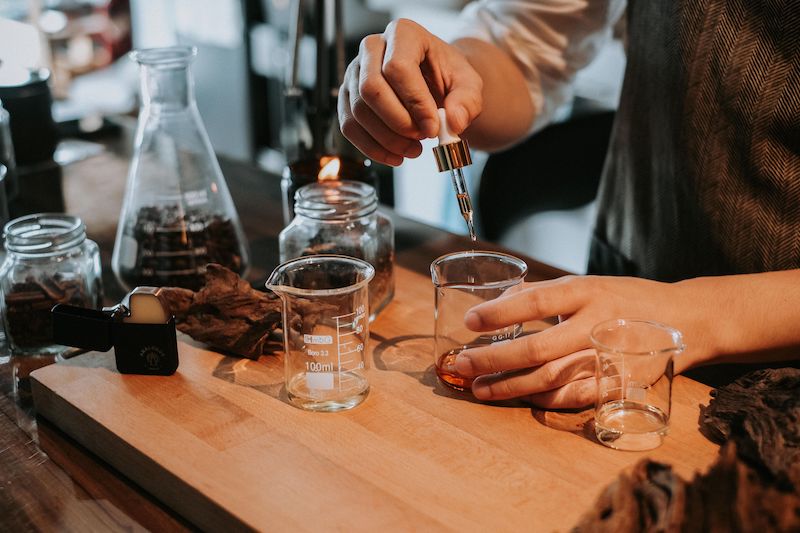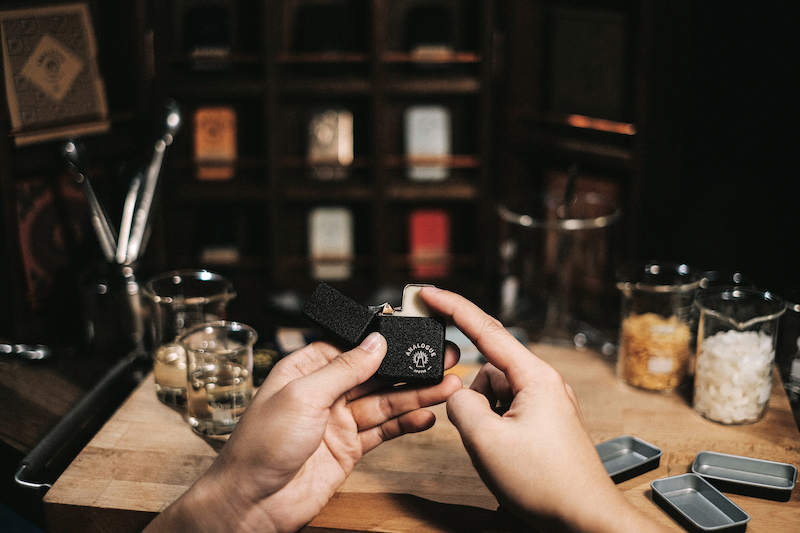
Analogue Apotik began as an effort to pick up the spirit of the old, and reintroduce what our traditional pharmacists left off (All photos: Analogue Apotik)
Adrian Cheong Tun Keat is definitely not the sort of person to let a good opportunity pass him by. While working with the sales team at Groupon, he was approached by his current business partners, who were keen to invest in a business. Cheong pitched a few ideas, and the one they chose was Analogue Apotik (which was then called The Apothecary).
In 2015, Cheong came across an article that detailed how solid colognes — an alternative to conventional liquid fragrances — were the next big thing. “I checked it out and realised there were brands in the US that were just one year old. I thought it was something we could build in Malaysia. I was inspired by what happened with Uber. They were quite big back then and decided to move to China, but got kicked out because there was already another ride-hailing business. We wanted to build that for solid colognes in Asia so that, when American brands come over, it will be too late,” he says.
Inspired by old-school apothecaries who crafted fascinating elixirs and potions, Cheong named his business The Apothecary. While he had monetary support, running the business was a one-man show. Researching and developing the first range of solid colognes took roughly four months. The business began with three scents, only one of which, called Cornerstone, is still sold online today.
owner.jpeg

Challenges cropped up when it came time to sell the solid colognes. “It was hard to convince people that this little block could last for months. Also, while I wholly believe in having a business online, we are dealing with scent. If people don’t experience it, they won’t bite. We were not a known brand that people would just buy from. When we first started selling online, it was tough; so, we did have to go into a bricks-and-mortar space,” Cheong explains.
He started placing his scents in small stores — first a neighbourhood store in SS15, Subang Jaya and then places such as Pestle & Mortar’s Bangsar branch in Kuala Lumpur. To really get the word out there, Cheong contacted as many media outlets as possible with press releases. He was then quick to use the published articles as leverage to attract international interest.
“The first was Taiwan, where we got a store in Taipei to stock our scents. We started selling internationally very quickly. We sold them in Hong Kong and even Singapore. This was all within the first four months,” he says. Everything happened so quickly because solid cologne was such a unique and unusual product at the time.
Cheong quickly saw the benefit of continuing to sell his colognes outside Malaysia. “Once we sold abroad, I realised the buying power was a lot stronger. For example, Singapore’s currency is three times ours. One of my tins would cost about RM75 and in Singapore it is just S$25,” he says.
analogue_1.jpeg

Over the years he expanded their range of solid cologne scents. He even rebranded The Apothecary to Analogue Apotik. “‘Analogue’ means parallel. We still want to be the apothecary but being apothecary alone is generic. So, we wanted to be an analogue of that,” he says, adding that “Apotik” is his own Malaysianised version of the word.
The year 2019 was pivotal for Analogue Apotik. Business was booming, and Cheong decided to introduce new products and even opened its headquarters in Sunway Geo, Subang Jaya. At this point, solid colognes were no longer unique, and many similar businesses were cropping up. Even the small tins that the scents are stored in were used by other companies. To differentiate Analogue Apotik, Cheong released the Crackle Case, a distinctive design that looks like a lighter. When the cologne is finished, customers need only buy a refill to replace the tray inside this unusual case.
Many customers still want liquid scents, but Cheong wanted to do something different. “Most liquid scents are ethanol-based. We decided to do something oil-based instead. It has better sealage, which means better release of the scent. We started with a small batch first. I’m not a big fan of using ethanol because it dries the skin and, if I ship it out, it would have to be classified as dangerous goods, as it is flammable,” he explains. The Colossus, Phenomen and Cleopatra scents are currently available in both liquid and solid forms. Cheong plans to make Analogue Apotik’s oil-based fragrances available as a spray format as well.
dscf8398.jpg

The brand also offers scents for the home. “The candle was like a reactive move. It was during the pandemic. We thought last year was going to be tough. We needed something to move into homes because people weren’t going out. Also, people trust our fragrances now; they know our brand. So, it was not too hard for us to move into creating candles,” Cheong says.
What makes customers enjoy Analogue Apotik’s products so much is their old-school aesthetic, inspired by the apothecaries of old. “I think people genuinely loved the whole story we have built around the apothecary, the whole design. I wanted it to be quite intentional with our scents and everything. For instance, the Crackle Case packaging is very minimal. One reason is to reduce waste. So, the wrapping paper around the case is dual purpose because it has all the information on it, like how to use it. And we seal it with a wax stamp,” Cheong says.
The business has produced scents for other brands, including for a company in Singapore. “I don’t mind building products for others because we have the expertise. I always believe the best business is the one that grows other people’s businesses. For example, with food trucks, there’s always a season when everyone wants his own truck. And who’s the one who makes the most money? The guy who builds the food trucks,” Cheong says.
In future, Analogue Apotik will have a bricks-and-mortar store to showcase its products. Cheong hopes to expand its international business into the US as well. “Everyone wants to build the next unicorn, but I want our business to be a cockroach. It doesn’t die, and you know it won’t die. It lasts throughout the ages,” he says.
This article first appeared on June 21, 2021 in The Edge Malaysia.


